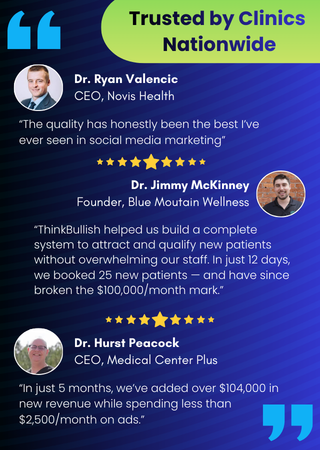For your functional medicine marketing, the biggest question you must answer is:
Your ideal patients are searching for you; are they able to find you?
You will find the answer in SEO!
SEO or search engine optimization is crucial for your functional medicine marketing. Since the field is relatively new and patients lack awareness, they are searching for it more than ever.
This actually sounds like a perfect opportunity for you to captivate the attention of these prospects. All you have to do is figure out the keywords and questions your prospects are using to search about you and craft a strategy around that to bring your office’s name right in front of them.
In this post, I am sharing a well-defined blueprint for your functional medicine SEO.
The Right Keywords Strategy for Functional Medicine Marketing
Keywords are the foundation of SEO. Your prospective patients want to know about your services, and the terms they use while searching are your keywords. When patients search for treatment solutions using specific keywords and your website features those keywords, chances are your name would appear on top results. That is why keywords are so important for your functional medicine marketing.
Luckily, some tools and resources can help you almost accurately predict the right keywords.
- Google Search Console is a free tool where you get data about how people are finding you, where they are clicking, and other search-related content. It may be an advanced tool and hard to understand, but you get an incredible amount of free data that you can use to curate your keyword list.
- Lean on predictive search. In predictive search, Google suggests what your prospect would search when they start to type a keyword. You can add these suggestions to your keywords.
- Ubbersuggest is another resource that you can use to find all the relevant keywords. This tool not only tells you about the keywords but also lets you know other stuff like ranking.
- Looking for LSI keywords is another important step you can take to enrich your SEO strategy with the right keywords. LSI keywords are related to your main search terms. For that, you type your search term and scroll all the way down to see related search terms.
Optimize Your Site With Keywords
Now that you have a list of relevant keywords, the next logical thing to do is incorporate them onto your website. The best way to do that is to use keywords in the:
- Title tag of the content
- Meta description
- In headings
- Within body text
- Image alt tags
Besides that, you must also consider the following tips to effectively incorporate keywords on your website:
- Don’t overstuff your page with keywords. Write copy and blog posts in such a way that your keywords appear to be a part of your content organically.
- Write fresh and original content for your website and blogs.
- Optimize every page of your website for keywords.
- Avoid using the same keywords on every page; it may cannibalize your website ranking.
With these tips, your website is all set and ready to reap the benefits of keywords. If you are struggling with these concepts and can’t figure out the way to practice SEO as a part of your functional medicine, avail the services of my agency, Think Bullish.
Schedule a discovery call here, and we will fill you in on all the great things we can do for your practice.
Blogging, The Holy Grail of Content Marketing
Blogging is at the epicenter of SEO. Search engines love websites that consistently publish new content and add new pages. Consider every blog post as another way a prospective patient can find you. It may be a slow but steady mechanism that you can add to your functional medicine marketing plan.
Here’s what you need to do for your blog:
- When you are just starting out, I recommend, you opt for a schedule that you can easily maintain. I’d say publish one post a week and be consistent with it. If you can do more, that’s even better.
- While writing your posts, they must have at least 600 words.
- Make your blog posts informative and full of value.
- Make your blog posts enriched with keywords. The best way is to incorporate your keyword in the heading and maintain its density throughout the document.
- After publishing your blog posts, you can also repurpose them in your newsletters and social media and even create video content from them.
These are some of the best practices of blogging that can rev up the engine of your functional medicine marketing. Following these strategies will improve the overall searchability of your website, it will pave the way for more organic traffic as well as help you build the reputation of being a thought leader in the field.
Get Under Your Ideal Patient’s Radar With Google My Business Listing
Google My Business listing is my ultimate favorite SEO strategy, and I ensure that we opt for it for all the practitioners we work with. It’s like having your office profile on Google. It’s a powerful magnet to attract highly motivated and qualified leads and can totally amp up the performance of your functional medicine marketing.
Here’s what you need to do to optimize your Google My Business listing:
- Visit the business profile page and fill out all the information to complete your profile. This includes some basic information like the address of your office, operating hours, website, and contact details. It also allows you to provide details about your area of practice.
- Make sure that you provide complete and accurate information.
- Add geotag photos. You can take office photos from your phone with the location tag on. It will then embed a location code on your photos
- If you relocate or there’s a change in your operating hours, don’t forget to update here.
- The next step is to verify your listing. You can do that by having a postcard mailed to your office or by making a call to your office.
These are some super easy steps that you have to take, but they will give you amazingly notable results. I also advise my clients to stay active on their Google profiles by constantly posting, getting reviews from patients, and answering questions.

Backing Your Functional Medicine Marketing Plan With Backlinks & Citation
Often professionals and marketers ignore this, but backlinking is a core aspect of an effective and sound SEO strategy. Backlinking and citation involve linking one website or page to another website or page.
It builds credibility and trusts for your website. In short, it is an important piece of the puzzle that helps you improve the ranking of your website. While putting in efforts for link building, you have to take care of a few things that I am listing below:
- Relevancy is of utmost importance. You can’t put up your link on a furniture website. Always do link-building with websites and pages that are relevant to you.
- Always check out the authenticity and credibility of websites where your web pages are cited.
- Write guest blog posts, give podcast interviews, and speak at events for more natural and organic link-building.
- Submit your website to directories and yelp.
- I’m sure while pursuing functional medicine marketing, you’d consider collaborations. When doing so, always ask for backlinks.
These small things will make your backlinks strong and organic to bring your website top of search results.
Wrapping Things Up
SEO should be an integral part of your functional medicine marketing plan as it can reap incredible results. The great news is that every strategy that I discussed above is not that difficult to execute.
Plus, there are millions of articles, blog posts, and guides available on the internet to help you understand these concepts. Once you know the basic drivers of SEO, all you need is consistent effort.
In case you are still unsure about these concepts or too busy with your practice, a better option is to seek the assistance of a specialized professional or agency. We’ve helped many practitioners like you and can certainly produce the same, even better results for your office too. Schedule a discovery call here to learn more about our services.

Zack Siegel
Founder/CEO
Zack is a conversion rate lover and PPC ad man spending most of his time optimizing.
He’s an avid bookworm, Chipotle’s most valued customer, and pursuant stand-up comedian…
We give him reality checks every day.






